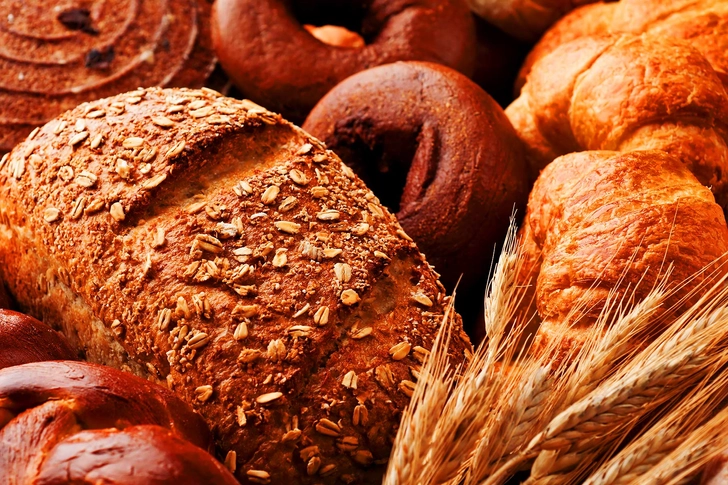- Overview
- Types
- Symptoms
- Causes & Risks
- Tests & Diagnosis
- Treatment
- Living With
- Mobility & Assistive Devices
- Complications
- Caregiving & Support
- Appointment Prep
- View Full Guide
8 Foods That May Help Fight MS Brain Fog



Nutrition for Support, Not Treatment
It's important to have realistic expectations about nutrition and MS. Nutrition works best as support for your overall MS management. But it doesn’t replace your treatment. Work with your health care team to make sure that any diet changes you want to try fit with your other treatments.

Fatty Fish: Omega-3 Powerhouses
Fatty fish like salmon, mackerel, and sardines are rich in omega-3 fatty acids. Since inflammation plays a role in MS symptoms, omega-3s' anti-inflammatory effects may be especially helpful for brain fog. People with MS who eat fish regularly or take omega-3 supplements report better quality of life and less disability in some studies. Studies have found that omega-3 supplements may reduce how often relapses happen and lower inflammation in your body. Try to include fatty fish in your meals two to three times per week. One serving is 4 ounces – around the size of a deck of cards. If you don't eat fish, talk to your doctor about omega-3 supplements. Your doctor can recommend the right dose for you and make sure that the supplements don’t affect your medications.

Blueberries: Antioxidant Support
Blueberries are packed with antioxidants called anthocyanins, which give them their deep blue color. These compounds fight inflammation and protect your brain cells from damage. While we need more research on blueberries specifically for MS, we do know that antioxidants help reduce oxidative stress in your brain. This type of cellular damage is common in conditions like MS that involve inflammation in the brain and spinal cord. The anti-inflammatory properties in blueberries may help support overall brain health. For people with nrSPMS dealing with cognitive symptoms, adding antioxidant-rich foods like blueberries to your diet is a simple step that might help. Enjoy fresh or frozen blueberries in smoothies, yogurt, or oatmeal. Aim for about half a cup several times a week.

Dark Leafy Greens: Anti-Inflammatory Support
Spinach, kale, and other dark leafy greens are nutritional powerhouses. They're rich in folate, vitamin K, and antioxidants that support brain function. They also have healthy omega-3 fats. Another type of fat called omega-6 can also be healthy. But taking in lots of omega-6s and few omega-3s may play a role in inflammation. Dark leafy greens help tip the scales back toward balance by providing plant-based omega-3s and reducing your need for processed foods high in omega-6s.The B vitamins in leafy greens, especially folate, also help your body make neurotransmitters -- the chemical messengers your brain needs to function well. This may contribute to better mental clarity. Add a handful of spinach to smoothies or enjoy a big salad with mixed greens daily.

Walnuts: Plant-Based Omega-3 Sources
Walnuts are one of the best plant sources of omega-3 fatty acids. They offer healthy fats, protein, and antioxidants that may help keep your energy levels steady and reduce mental fatigue. If you follow a plant-based diet or want to vary your omega-3 sources, you can eat walnuts as an easy option. The combination of nutrients in them may help fight the brain fog. A small handful (about 1 ounce) of walnuts makes a good snack or addition to salads and yogurt. Flaxseed is also a good way to get plant-based omega-3s. One study found that flaxseed oil supplements were linked with a 60% lower relapse rate in people with MS over 12 months.

Extra-Virgin Olive Oil: Mediterranean Diet Benefits
Extra-virgin olive oil is a cornerstone of the Mediterranean diet, which has been studied for its brain-protective effects. Olive oil provides monounsaturated fats and compounds called polyphenols. These may help improve blood flow to your brain and reduce oxidative stress. For people with nrSPMS, as with the general population, these effects could support better cognitive function. Choose extra-virgin olive oil for the highest levels of beneficial compounds. Use it for cooking at low to medium heat, or drizzle it on salads and vegetables.

Other Berries: Supporting Antioxidant Balance
Strawberries, raspberries, and blackberries join blueberries as brain-healthy choices. These colorful fruits provide different types of flavonoids and antioxidants that work together to fight inflammation. The natural sugars in berries provide gentle energy without the blood sugar spikes you get from processed foods. This steady energy may help maintain consistent brain function throughout the day. Mix different berries into your diet for the widest range of antioxidants. Fresh, frozen, or dried (without added sugar) all work.

Complex Carbohydrates: Steady Energy Sources
Your brain runs on blood sugar, also called glucose. Steady blood sugar levels are crucial for clear thinking. For people with nrSPMS dealing with both physical and cognitive symptoms, stable blood sugar becomes even more important. Unlike simple sugars that cause energy spikes and crashes, complex carbs release glucose slowly. This may help reduce bouts of brain fog and support consistent mental performance. To get complex carbs, choose starchy vegetables and whole grains like brown rice and quinoa. Eat fewer refined grains and sugary foods, like candy bars, sugary sodas, and refined flour products.

Eggs: Complete Protein Support
Eggs provide all the amino acids your body needs to make neurotransmitters -- the brain chemicals that affect mood and thinking. They're also rich in choline, which is essential for brain function. For people with nrSPMS, the high-quality protein in eggs helps maintain stable blood sugar levels, especially if you eat them along with complex carbs. This may contribute to more consistent cognitive performance throughout the day. The combination of protein, healthy fats, and brain-supporting nutrients makes eggs a practical choice for good nutrition that may help with brain fog.

Nutrition: One Piece of the MS Puzzle
For people with nrSPMS dealing with brain fog, it’s important to follow your doctor’s guidance for treatment, including medications. After that, it may help to eat a mix of healthy foods. Here's your action plan:
- Include anti-inflammatory foods like fatty fish and berries.
- Balance your omega fatty acids with nuts, seeds, and leafy greens.
- Choose complex carbohydrates for steady energy.
- Get enough lean protein.
While nutrition alone can't treat nrSPMS, these healthy choices may help support cognitive function and overall well-being. Talk to your doctor or a registered dietitian about creating a eating plan that works for you.
IMAGES PROVIDED BY:
Slide 1: Moment/Getty Images
Slide 2: Moment/Getty Images
Slide 3: Getty Images
Slide 4: Getty Images
Slide 5: iStock / Getty Images
Slide 6: Getty Images
Slide 7: Getty Images
Slide 8: Getty Images
Slide 9: Getty Images
Slide 10: iStock / Getty Images
SOURCES:
Archives of Neurology: "ω-3 fatty acid treatment in multiple sclerosis (OFAMS Study): a randomized, double-blind, placebo-controlled trial."
Cleveland Clinic: "Oxidative stress."
CNS & Neurological Disorders-Drug Targets: "The Effects of Omega-3 Supplementation on the Expanded Disability Status Scale and Inflammatory Cytokines in Multiple Sclerosis Patients: A Systematic Review and Meta-Analysis."
Harvard Health Publishing: "Foods that fight inflammation," "Foods linked to better brainpower," "Eat these fruits for their anti-inflammatory benefits," "No need to avoid healthy omega-6 fats."
Mass General Brigham: "How to control blood sugar with diet."
Mayo Clinic: "Vitamin B-12 and depression: Are they related?" "Carbohydrates: How carbs fit into a healthy diet," "Omega-3 in fish: How eating fish helps your heart."
National Multiple Sclerosis Society: "Vitamin, mineral and supplement guidelines."
Northwestern Medicine: "Best food for a healthy brain."
Nutritional Neuroscience: "Effect of omega-3 fatty acids and fish oil supplementation on multiple sclerosis: a systematic review."
PLOS One: "Omega-3 Fatty Acids for Depression in Multiple Sclerosis: A Randomized Pilot Study."
PubMed Central: "The potential effects of blueberry on cognitive health through gut microbiome," "Omega-3 in the Prevention of Cognitive Decline in Humans," "Antioxidant Capacity of Bioaccessible Fractions of Pomegranate Peel Powders," "Carbohydrate Quality and Quantity in Relation to Body Mass Index."
Prostaglandins, Leukotrienes and Essential Fatty Acids: "Low fat dietary intervention with omega-3 fatty acid supplementation in multiple sclerosis patients."
PubMed: "Omega-3 fatty acids and MS in relationship to depression."
UMass Medical School: "Omega-3 fatty acids: a good fat to have."